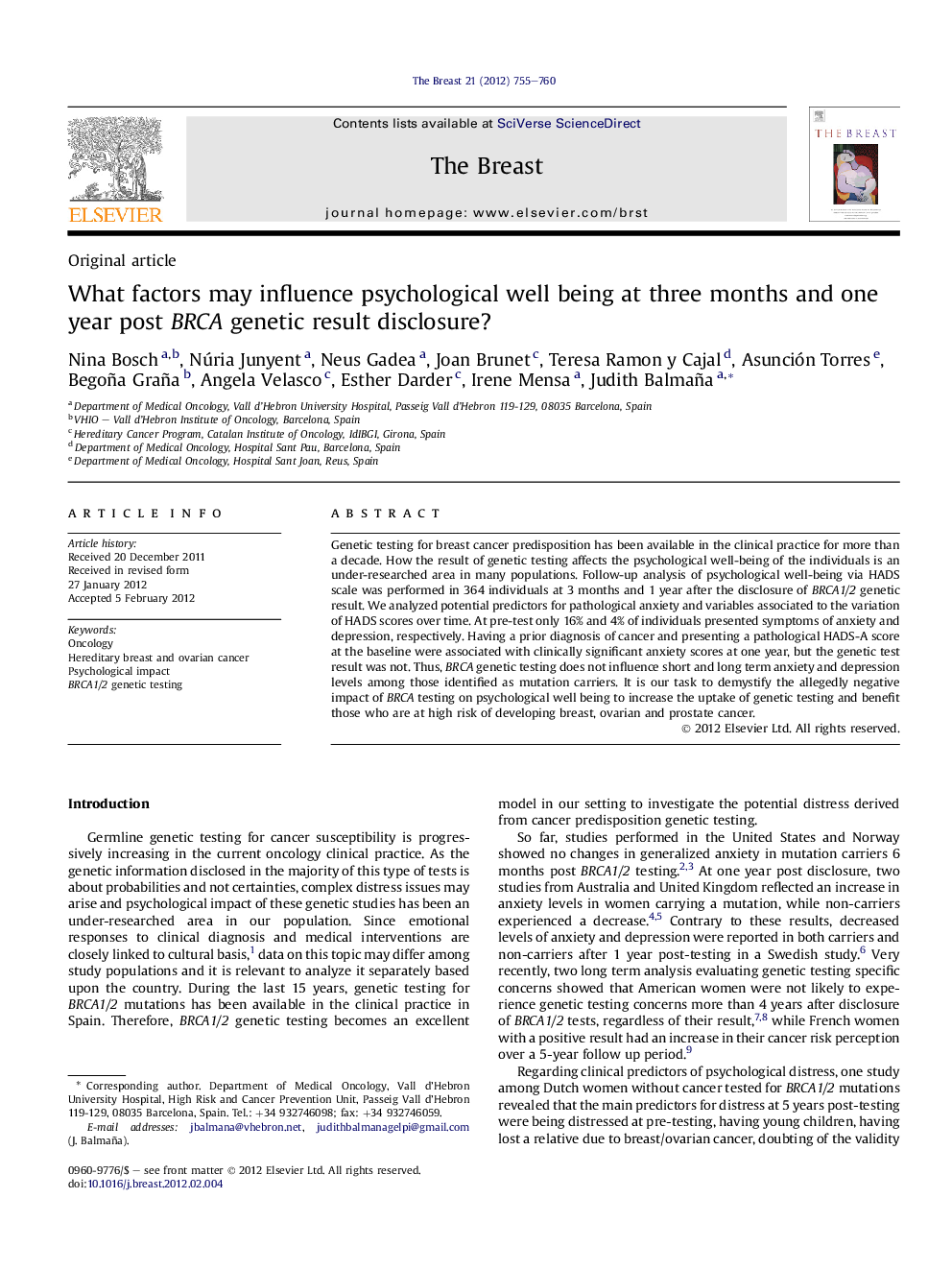| Article ID | Journal | Published Year | Pages | File Type |
|---|---|---|---|---|
| 3908973 | The Breast | 2012 | 6 Pages |
Genetic testing for breast cancer predisposition has been available in the clinical practice for more than a decade. How the result of genetic testing affects the psychological well-being of the individuals is an under-researched area in many populations. Follow-up analysis of psychological well-being via HADS scale was performed in 364 individuals at 3 months and 1 year after the disclosure of BRCA1/2 genetic result. We analyzed potential predictors for pathological anxiety and variables associated to the variation of HADS scores over time. At pre-test only 16% and 4% of individuals presented symptoms of anxiety and depression, respectively. Having a prior diagnosis of cancer and presenting a pathological HADS-A score at the baseline were associated with clinically significant anxiety scores at one year, but the genetic test result was not. Thus, BRCA genetic testing does not influence short and long term anxiety and depression levels among those identified as mutation carriers. It is our task to demystify the allegedly negative impact of BRCA testing on psychological well being to increase the uptake of genetic testing and benefit those who are at high risk of developing breast, ovarian and prostate cancer.
